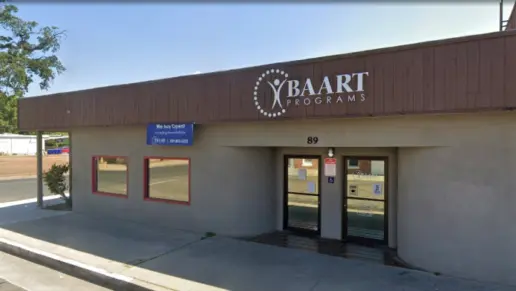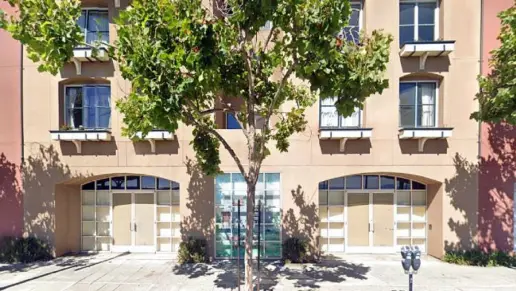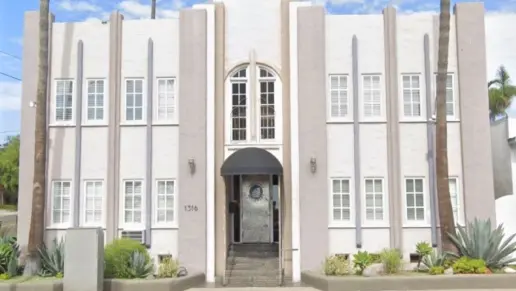About Tarzana Treatment Centers – Atlantic Avenue
Tarzana Treatment Centers - Atlantic Avenue is a drug rehab facility in Long Beach, California. The center offers treatment for substance, alcohol, and opioid use disorders and co-occurring mental and behavioral health disorders. This location provides medication-assisted treatment (MAT), detox, inpatient treatment, partial hospitalization programs (PHPs), intensive outpatient programs (IOPs), general outpatient programs (OPs), sober living, 12 Step programs, dual diagnosis treatment, case management, and aftercare for teenagers, young adults, and adults. Specialized programs are available for justice-involved persons and gender-specific groups. Telehealth is available. Specialized programs in the Tarzana Treatment Centers network are available for veterans.
Tarzana Treatment Centers – Atlantic Avenue may provide medications to ease clients’ addictions and chronic pain during withdrawal. Clients may receive Suboxone, Sublocade, Vivitrol, buprenorphine, methadone, and naltrexone. The center also offers methadone and buprenorphine maintenance programs to prevent relapse. Women may be eligible to receive Vivitrol treatment. Mothers with young children may be eligible for childcare. Telehealth support is also available for medication management.
At Tarzana Treatment Centers- Atlantic Avenue, detox clients undergo a personalized screening and receive a custom care program. Detox can include medical, psychiatric, and holistic therapies to prevent relapse and to ease withdrawal. Clients are enrolled in 12 Step programs to begin their transition into sobriety.
Inpatient programs at the Atlantic Avenue facility focus on mental and behavioral health stabilization. Clients may receive group and individual counseling, emotional wellness training, life skills development, and career counseling. Clients are enrolled in 12 Step programs to promote healthy daily routines. Trauma care, medication management, and 24/7 supervision are provided.
The partial hospitalization program consists of 6-hour sessions on weekdays. Clients develop coping skills, receive periodic assessments, and participate in group and individual counseling. The program is directed toward maintaining sobriety and returning to healthy daily routines. Mothers may bring their children ages 0-5 to treatment sessions.
The intensive outpatient program offers 3 stages of recovery and includes up to nine hours of treatment per week in day and evening classes. Clients participate in group counseling and life skills development and guidance. Cognitive behavioral therapy (CBT) and dialectical behavioral therapy (DBT) approaches are utilized to support patient emotional and mental wellness. Programs for children can include outreach toward schools and mentorship programs. Parenting classes may be available.
Outpatient services are held weekly in day or night sessions. Clients participate in group and individual therapy to enhance their daily living routines. Family resources, counseling, and education intervention tools may be available.
Recovery Housing provides clients with short-term residential care to promote their sobriety as they transition to long-term housing. Clients stay for three months, with an option to extend their stay for another three months. Outpatient treatment programs are required throughout their stay.
Tarzana Treatment Centers provides continual care and support for alumni. Relapse prevention education programs are available in addition to family resources. Tarzana Treatment Centers may also make referrals to its partnership programs in other facilities. Community outreach and resources are also available.
Tarzana Treatment Centers is accredited by The Joint Commission and LegitScript certified.
Tarzana Treatment Centers offers self-pay and financing options. The center may be in-network with insurance providers, such as Aetna, Beacon, BlueCross/BlueShield, Cigna, Humana, Kaiser Permanente, Magellan Health, TRICARE, and Wellpoint. Please check with your insurance provider for specific details concerning out-of-network benefits.
Latest Reviews
Rehab Score
Gallery
Other Forms of Payment
Medicaid is a state based program that helps lower-income individuals and families pay for healthcare. Medicaid covers addiction treatment so those enrolled can use their coverage to pay for rehab. When a program accepts Medicaid the client often pays very little or nothing out of their own pocket.
Private insurance refers to any kind of healthcare coverage that isn't from the state or federal government. This includes individual and family plans offered by an employer or purchased from the Insurance Marketplace. Every plan will have different requirements and out of pocket costs so be sure to get the full details before you start treatment.
Self-pay involves paying for treatment out of your own pocket. You can use savings or credit, get a personal loan, or receive help from family and friends to fund your treatment. If you don't have insurance or your insurance plan doesn't cover a specific program, self-pay can help ensure you still get the care you need.
Sliding scale payments are based on a client's income and family size. The goal is to make treatment affordable to everyone. By taking these factors into account, addiction recovery care providers help ensure that your treatment does not become a financial burden to you or your family, eliminating one barrier to care.
Medicare is a federal program that provides health insurance for those 65 and older. It also serves people under 65 with chronic and disabling health challenges. To use Medicare for addiction treatment you need to find a program that accepts Medicare and is in network with your plan. Out of pocket costs and preauthorization requirements vary, so always check with your provider.
Addiction Treatments
Levels of Care
Treatments
The goal of treatment for alcoholism is abstinence. Those with poor social support, poor motivation, or psychiatric disorders tend to relapse within a few years of treatment. For these people, success is measured by longer periods of abstinence, reduced use of alcohol, better health, and improved social functioning. Recovery and Maintenance are usually based on 12 step programs and AA meetings.
Drug rehab in California teaches participants constructive ways to stay clean and sober. Treatment revolves around helping individuals stop using the substance they are addicted to and learn healthy habits to avoid relapse.
Many of those suffering from addiction also suffer from mental or emotional illnesses like schizophrenia, bipolar disorder, depression, or anxiety disorders. Rehab and other substance abuse facilities treating those with a dual diagnosis or co-occurring disorder administer psychiatric treatment to address the person's mental health issue in addition to drug and alcohol rehabilitation.
A combined mental health and substance abuse rehab has the staff and resources available to handle individuals with both mental health and substance abuse issues. It can be challenging to determine where a specific symptom stems from (a mental health issue or an issue related to substance abuse), so mental health and substance abuse professionals are helpful in detangling symptoms and keeping treatment on track.
Opioid rehabs specialize in supporting those recovering from opioid addiction. They treat those suffering from addiction to illegal opioids like heroin, as well as prescription drugs like oxycodone. These centers typically combine both physical as well as mental and emotional support to help stop addiction. Physical support often includes medical detox and subsequent medical support (including medication), and mental support includes in-depth therapy to address the underlying causes of addiction.
Programs



Clinical Services
Cognitive Behavioral Therapy (CBT) is a therapy modality that focuses on the relationship between one's thoughts, feelings, and behaviors. It is used to establish and allow for healthy responses to thoughts and feelings (instead of unhealthy responses, like using drugs or alcohol). CBT has been proven effective for recovering addicts of all kinds, and is used to strengthen a patient's own self-awareness and ability to self-regulate. CBT allows individuals to monitor their own emotional state, become more adept at communicating with others, and manage stress without needing to engage in substance abuse.
Dialectical Behavior Therapy (DBT) is a modified form of Cognitive Behavioral Therapy (CBT), a treatment designed to help people understand and ultimately affect the relationship between their thoughts, feelings, and behaviors. DBT is often used for individuals who struggle with self-harm behaviors, such as self-mutilation (cutting) and suicidal thoughts, urges, or attempts. It has been proven clinically effective for those who struggle with out-of-control emotions and mental health illnesses like Borderline Personality Disorder.
Research clearly demonstrates that recovery is far more successful and sustainable when loved ones like family members participate in rehab and substance abuse treatment. Genetic factors may be at play when it comes to drug and alcohol addiction, as well as mental health issues. Family dynamics often play a critical role in addiction triggers, and if properly educated, family members can be a strong source of support when it comes to rehabilitation.
Group therapy is any therapeutic work that happens in a group (not one-on-one). There are a number of different group therapy modalities, including support groups, experiential therapy, psycho-education, and more. Group therapy involves treatment as well as processing interaction between group members.
In individual therapy, a patient meets one-on-one with a trained psychologist or counselor. Therapy is a pivotal part of effective substance abuse treatment, as it often covers root causes of addiction, including challenges faced by the patient in their social, family, and work/school life.
Trauma therapy addresses traumatic incidents from a client's past that are likely affecting their present-day experience. Trauma is often one of the primary triggers and potential causes of addiction, and can stem from child sexual abuse, domestic violence, having a parent with a mental illness, losing one or both parents at a young age, teenage or adult sexual assault, or any number of other factors. The purpose of trauma therapy is to allow a patient to process trauma and move through and past it, with the help of trained and compassionate mental health professionals.
Amenities
-
Private Setting
Accreditations

The Joint Commission, formerly known as JCAHO, is a nonprofit organization that accredits rehab organizations and programs. Founded in 1951, the Joint Commision's mission is to improve the quality of patient care and demonstrating the quality of patient care.
Joint Commission Accreditation: Yes
Contact Information
5190 Atlantic Avenue
Long Beach, CA 90805


